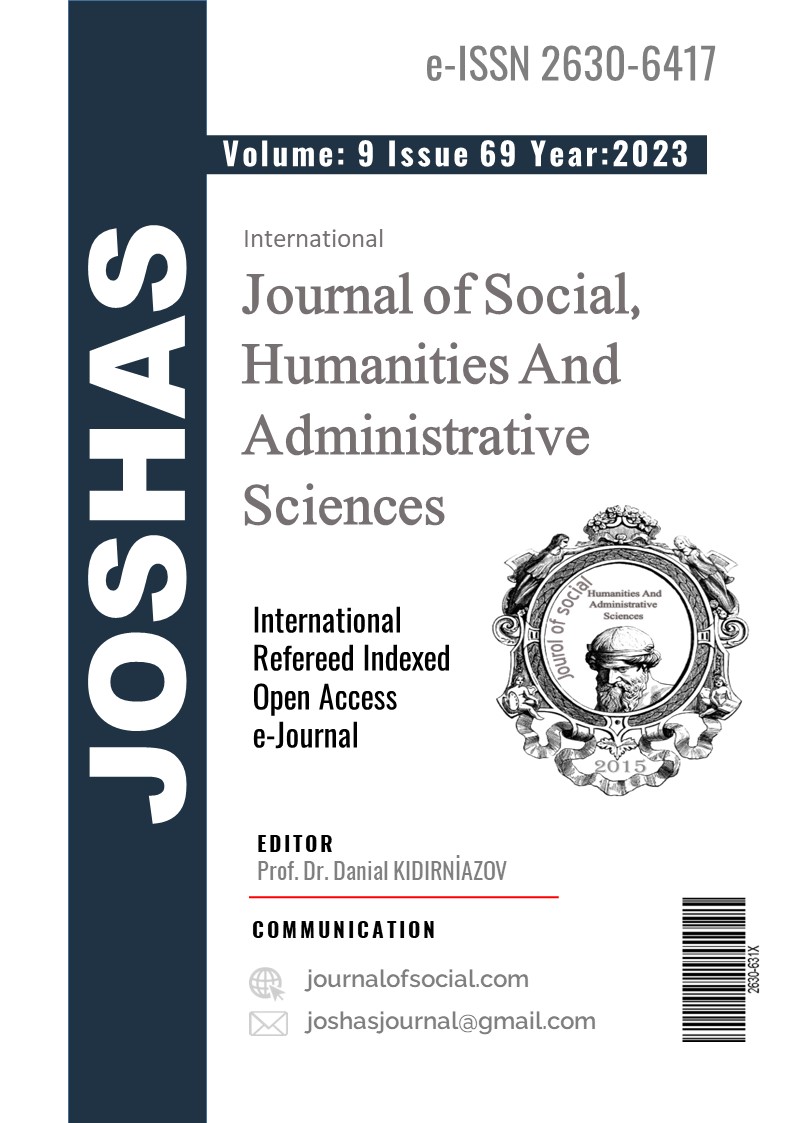Author :
Abstract
Birey eğitim sayesinde sosyal bir varlık olmakta, içinde doğduğu toplumun genel kural ve kaidelerini öğrenerek topluma uyum sağlamaktadır. Eğitim olgusu aynı zamanda felsefi bir problem alanı da olmaktadır. Felsefe bu olguyu eğitim felsefesi alt başlığında ele aldığı gibi felsefenin eğitimi ile de ele almaktadır. Eğitim felsefesi, eğitimin toplumsal yanını öne çekmekte; amacı, yöntemi, süreci ve geleceği ile alakalı eleştirel bir tutum takınmakta, insan-toplum-doğa-evren ilişkisine bütüncül bir yaklaşımın eğitim sürecindeki boyutu ile ilgilenmektedir. Felsefe eğitimi ise felsefenin tarihsel, problematik kavramsal süreçlerini tartışmaları ile beraber eğitim alan bireye vermekte ve bireyde felsefi, eleştirel bir düşüncenin gelişmesinin önünü açmaktadır. Bu bağlamda eğitim sürecinin başlangıcından, günümüze ve geleceğine yönelik şekillenişine “niçin?” sorusu çerçevesinde eleştirel bir yaklaşım sergilemeyi amaç edinmektedir. Bu çerçevede eğitim ile felsefe ilişkisi kurulmuş, felsefe eğitiminin önemi vurgulanmıştır. Ülkemizde felsefe eğitiminin başarılı olabilmesi için bireyin gelişim basamaklarıyla ilişkilendirilmesi gerektiği sayıltısı göz önünde tutulmuş, felsefe eğitiminin biçimi, veriliş tarzı ve zamansallığı ile ilgili bir değerlendirme yapılmaya çalışılmıştır. Ülkemizde felsefe eğitiminin bireylerin gelişim basamağının sadece ileri evresinde yani lise döneminde verildiği, kısa süreli ve ders içeriklerinin günün gerekliliklerinden uzak bir içerikle hazırlandığı anlaşılmaktadır. Bu sorunların üstesinden gelmek için öncelikle felsefe eğitiminin, çocukluk döneminin erken evrelerinde başlayarak farklı yoğunlukta ve gelişim basamaklarına uygun eleştirel düşünmeye dayalı bir içerikle ders saatlerinin arttırılması ve günümüz çağının gerekliliklerini içerecek bir içerikle verilmesi gerektiği saptaması yapılmıştır. Sonuç olarak felsefe eğitiminin zamansallığı, veriliş biçimi ve tarzı ile ilgili tartışmaların yapılması gerektiği kanısına varılmıştır.
Keywords
Abstract
Through education, the individual becomes a social being and adapts to society by learning the general rules and regulations of the society in which he or she was born. The phenomenon of education is also a philosophical problem area. Philosophy deals with this phenomenon under the sub-heading of philosophy of education as well as with the education of philosophy. Philosophy of education emphasizes the social aspect of education; it adopts a critical attitude towards its purpose, method, process and future, and deals with the dimension of a holistic approach to the human-society-nature-universe relationship in the educational process. Philosophy education, on the other hand, gives the historical and problematic conceptual processes of philosophy to the individual receiving education together with its discussions and paves the way for the development of a philosophical and critical thinking in the individual. In this context, it aims to exhibit a critical approach to the shaping of the educational process from the beginning to the present and future within the framework of the question "why?". In this framework, the relationship between education and philosophy is established and the importance of philosophy education is emphasized. In order for philosophy education to be successful in our country, the assumption that it should be associated with the developmental stages of the individual was taken into consideration, and an evaluation was tried to be made regarding the form, delivery style and temporality of philosophy education. It is understood that philosophy education in our country is given only at the advanced stage of individuals' developmental stages, i.e. in high school, and that it is short-term and the course content is prepared with a content that is far from the requirements of the day. In order to overcome these problems, it has been determined that philosophy education should be provided with a content based on critical thinking at different intensities and in accordance with the stages of development, starting from the early stages of childhood, increasing the course hours and providing a content that will include the requirements of today's age. As a result, it was concluded that discussions should be held on the temporality, form and style of philosophy education.





